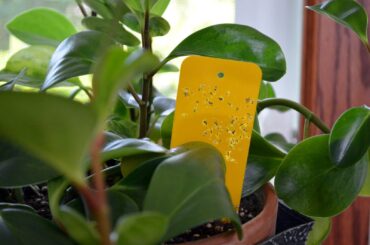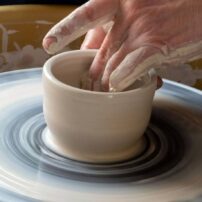 Keeping your houseplants healthy and looking their best with a bit of grooming this winter is sure to lift your spirits. Here are ways to keep your plants healthy.
Keeping your houseplants healthy and looking their best with a bit of grooming this winter is sure to lift your spirits. Here are ways to keep your plants healthy.
Clip off any dead leaves as they appear. Use a sharp snips or bypass pruner to make a clean cut that looks tidy and closes up quickly. An occasional brown leaf is not usually a problem, but if browning continues, it might be time to take action. Evaluate the growing conditions and make needed adjustments.
Brown leaves are often caused by low humidity, which is common in many homes during winter. Boost the humidity in your home by grouping plants together. As one plant loses moisture through its leaves through transpiration, the neighboring plants benefit.
Add pebbles or marbles to the saucer or trays beneath the plants. Allow excess water to collect in the pebbles below the pot. As the water evaporates, it increases the humidity right around the plant.
Move plants that require moist soil and high humidity into a terrarium. They are attractive living decorations and make caring for high-maintenance plants easier.
Over- and under-watering can also result in brown leaves, leaf edges and tips. Water thoroughly when needed. Base frequency on the plants you are growing, room temperature and humidity. Tropical plants need more consistently moist soil, while cacti and succulents like it drier. With lower light conditions in many homes, plants grow slower and may need less frequent watering in winter. Pour off any excess water that collects in the saucer to avoid root rot.

Stop fertilizing indoor plants in winter unless they are actively growing. Applying fertilizer that plants don’t need can cause root damage, leading to leaf discoloration.
Trim off brown tips that are common on spider plants, dracaenas, Ti plants and prayer plants sensitive to the chlorine and fluoride in water. Avoid the problem by using chemical-free water.
Wipe dust off the leaves with a damp cloth. Use a cosmetic brush to clean the fuzzy leaves of plants like African violets. Keeping your plants clean and well-groomed also helps reduce insect and disease problems.
Further protect plants from pests with Summit Sticky Traps (SummitResponsibleSolutions.com). Just place one or two in the pot with the sticky side exposed. The yellow attracts fungus gnats, aphids, thrips, leaf miners and other harmful pests feeding on your plants. The sticky surface traps the insects, causing them to die without the use of pesticides. Replace the trap once it’s covered with insects or every three months.
Boost indoor plant resilience by providing the right amount of light. Move plants to a sunnier window or add artificial lights as needed. Then give plants a quarter turn every time you water. This promotes more balanced growth by exposing all parts of the plant to the light source.
Taking time to tend to your plants improves their health and beauty while elevating your mood and helping fight stress.
























